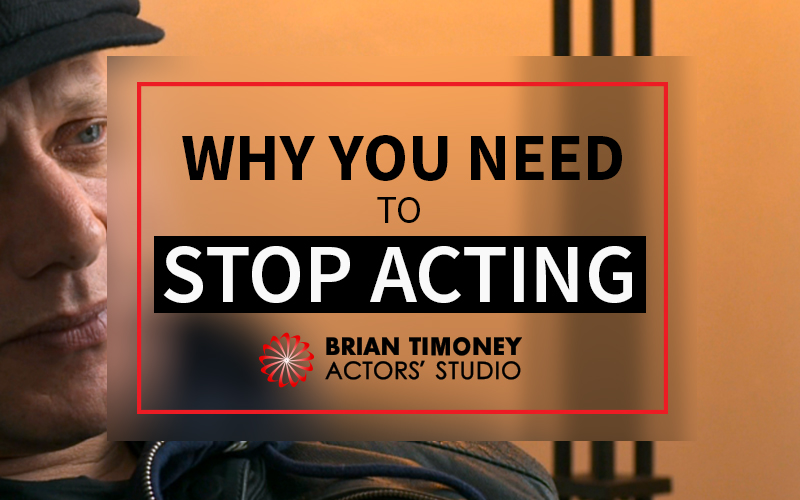“With any part you play, there is a certain amount of yourself in it. There has to be, otherwise it’s just not acting. It’s lying.”
–Johnny Depp
Many people see acting as one great big game of make-believe, with actors spending their lives playing at being other people. While in once sense this is true, creating truly exceptional performances is about moving beyond the idea of playing a character to truly become your character. This is what we mean when we say that you need to stop acting and “get real”.
Method acting allows you to dramatically (no pun intended!) improve your performance skills so you can truly become your characters, both in your own mind and the minds of your audience. When you learn how to method act, you gain a whole new range of skills to help turn you into the consummate performer you need to be for a successful career as a professional actor.
Understand how your brain works
Our brains work in different ways when carrying out different tasks. The logical, analytical parts of our brain work best with written and verbal information while the emotional, creative side of our brain responds more to images and our senses. When becoming a character, we need to use that emotional, creative side to inform our performance.
We do this by tapping into our memories, recalling images and sense memories to help trigger the emotions we need to build our performances. By understanding how our brains work, we can give ourselves a palette of real emotions to work with on command. Method acting allows us to do just that, giving us the techniques to effectively tap into our brains hidden potential.
Produce real emotions on demand
Method acting training involves learning to control this process of emotional recall to inject real truth into a performance. The process of doing this is known as affective memory and works by taking experiences from our own lives and deliberately recreating the emotions associated with those experiences.
Learning to control this process requires a great deal of self-discipline, but, once mastered, affective memory allows you to create performances that will be utterly convincing as they are anchored in truth. Audiences can always tell when an actor is faking it, so learning to create genuine emotions reliably and on demand is a key skill for any professional actor.
Create believable characters
The ultimate goal of method acting is to create characters who are totally believable to an audience. Injecting real emotions into your performance is a key part of this process, but there are also a number of other ways The Method can help you learn to create convincing characters on stage, on film or in any other kind of performance.
Method acting helps you to understand your own personality, providing a model for creating characters, but also helping you unlock your own psyche as a mine for “psychological truth”. Developing a coherent and truthful psychological blueprint for your characters will make them far more real to you, and therefore, much more believable to your audience.
Establish convincing relationships
One of the key things that defines any character is the way they interact with other characters. Convincing relationships between characters can help sell a performance and ensure that your audience are fully invested in the narrative of the story you are bringing to life. Learning method acting includes learning how to develop believable relationships with your fellow actors, which often involves as much work off-stage or off-screen as on.
For his Oscar-winning performance as the Joker in The Dark Knight, Heath Ledger reportedly refused to break character during the entire shoot. He also sent his co-stars various bizarre and offensive things in order to keep people appropriately unsettled around him. The idea was to provoke honest reactions from his co-stars that would imbue his scenes with them with emotional truth, helping to sell those relationships to the audience.
Bring your characters to life
Acting isn’t just about learning lines and repeating them on cue, it’s also important to master the physical aspects of bringing a character to life. One of the key method acting techniques for enhancing your physical performance is animal exercises. These focus on imitating animals, incorporating elements of the way they move into your characters. This produces characters that are both physically and psychologically distinctive from yourself as the very way they move is unique.
Oscar-winning actor Mark Rylance, speaking to Backstage, said of director Michael Alfreds:
“We did a lot of animal work and improvisation. He taught that the most perfect performances were alive and present and different each night.”
Animal exercises allow you to create performances that are alive in exactly the way Rylance mentions, but also fluid. This means you can give a performance that feels the same, time after time, without having to try to recreate the exact same movements in a way that can quickly become stale.
Isn’t it time you stopped acting and got real? Our industry-leading method acting classes will help you take your life experiences and use them to kick-start your professional acting career. Whether you’re an absolute beginner or an existing actor desperate to take your skills to the next level, we can help. To find out more, just get in touch and we will be happy to answer your questions.


